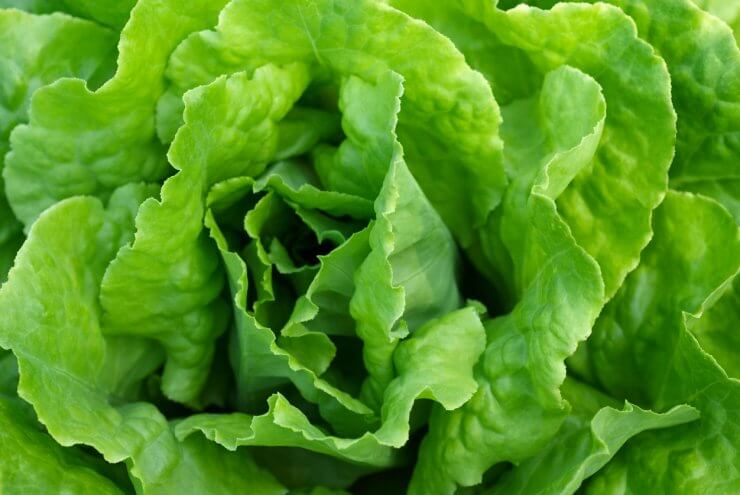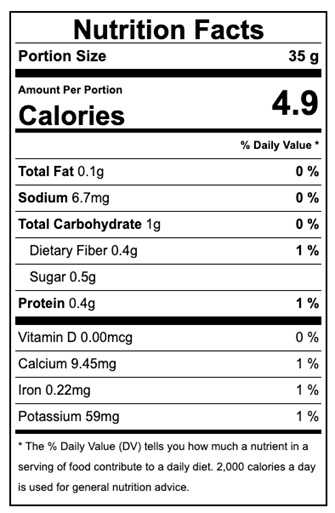
Healthful lettuce
Some people may say lettuce is just mostly water. While it’s true that lettuce has a high water content, many lettuce varieties are packed with nutrients, including vitamin K—essential for blood clotting, hearth health, and bone formation.
Here is the nutrition information for one cup of raw lettuce (keep in mind that the precise nutritional value of lettuce will vary from one variety to another):

Source: https://www.nutritionvalue.org/Lettuce%2C_raw_75113000_nutritional_value.html
The carbohydrates in that cup of lettuce are a half gram of sugar and less than a half gram of dietary fiber. Lettuce contains a trace amount of saturated fat, no cholesterol, and 1% of your daily recommended amount of protein.
What lettuce lacks in protein, it makes up for in vitamins, minerals, and antioxidants. And some varieties of lettuce have more fiber than others; fiber plays a role in healthy weight loss and lower blood pressure. Here are some of the compounds in lettuce:
Vitamin K: Vitamin K contributes to heart, bone, and blood health. One cup of lettuce has between 20% (iceberg) and 117% (red leaf varieties) of your recommended daily intake of vitamin K, depending on the variety.
Vitamin C: The vitamin C in lettuce is an antioxidant necessary for immune system and skin health. The greener the lettuce, the more vitamin C it contains.
Vitamin A: Vitamin A works as a powerful antioxidant necessary for immune system, eye, and skin health.
Diosmin: This antioxidant helps improve muscle tone and reduce inflammation in blood vessels.
Folate (Vitamin B9): This is important for normal tissue growth and cell function and is fundamental for pregnant women and older adults.
Flavonoids: These dietary compounds work as antioxidants to defend the body against damage from free radicals.
Potassium: This mineral is involved in many essential body functions, such as regulating blood pressure by reducing the effects of salt in your diet.
Did you know all these nutrition facts about lettuce? Please tell us what you think.


 Previous
Previous

